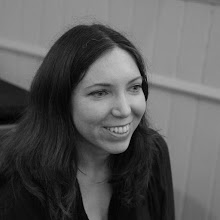
How and why did you get started in genealogy/family history?
I was interested in family history throughout my childhood, particularly as I lived with my grandparents, who were always telling me stories from their pasts. Later, I studied history at Sussex University and took the opportunity of the free internet access there to explore the emerging family history websites. Also, at a lecture, one of my tutors told us that in order to understand historiography we had to write the story of our own families. To begin writing my family history I had to find more details.
My grandfather had done some research into the JOLLY family, and I was able to take this further with a combination of websites and the university library. After moving to London, I began to explore more archives and was very excited by the progress I could make. Later, I studied for the Higher Certificate with IHGS, and then began working as a professional.
How far back have you traced your own family tree? Where there any surprises?
What surprises me in my tree and in those of others I research, is how often the information on official records differs from what family members assume they know. One surprise was that my great grandmother, who was always known as Emmie, turned out to have been named Emma on her birth certificate. Until I looked into this, no-one knew of another Emma in the family.
How often do you come across a ‘brick wall’ during your research? How do you get around it?
Many clients contact me specifically to solve their brick walls. Although this isn’t always possible, often progress can be made by looking in detail and organising all research done thus far.
Where’s the farthest you had to travel during your family history research? Was it a fruitful trip?
In my own family research, the furthest I have travelled is to Aberdeenshire. This was not to use documents so much as to see where my ancestors lived. The area has changed, but, unlike London where I live, the difference is that there are now fewer people. I’d love to visit India in the future, and, also, Washington DC, where a genealogist friend has promised to show me around the archives.
What do you think about internet only research? Is it possible to do everything on the internet?
It is not possible to do everything on the internet. Great progress is being made with digitisation and using online databases can help me to research more quickly than in the past. On the other hand, there are still many useful documents that aren’t online. When you are researching family history, you need to use as many resources as possible. It is important not to neglect anything that you can use – even if it can be expensive to access the information.
What are your favourite websites for family history research?
Depends on the nature of the family or the research, but every week I use the following:
- Fibis database
- Findmypast
- FamilySearch
- The Times online database
- British Newspaper Archive
- London Gazette
- Catalogues, such as Copac/ British Library catalogue/ LMA catalogue/ SOGCAT
- The National Archives/documents online
- CWGC
What book/s would you recommend for someone new to genealogy/family history?
- Family History for Kids (of course!)
- Amanda Bevan, Tracing Your Ancestors in the National Archives (out of print)
- Atlas & Index to Parish Registers (IHGS)
- Chris Paton, Tracing Your Family History on the Internet
What’s the best thing about being a genealogist?
There is no one thing – I love the variety, the problem-solving, the opportunity to help, writing, learning about all aspects of history, and all the lovely people I meet in the family history community.
What’s the worst thing about being a genealogist?
I’d love to earn more money.
Would you recommend genealogy as an occupation to others? Why / why not?
Yes, if they are passionate about family history and are disciplined enough to be self-employed. Otherwise, no.
Emma Jolly is a professional genealogist and author. Emma can be contacted through her website.